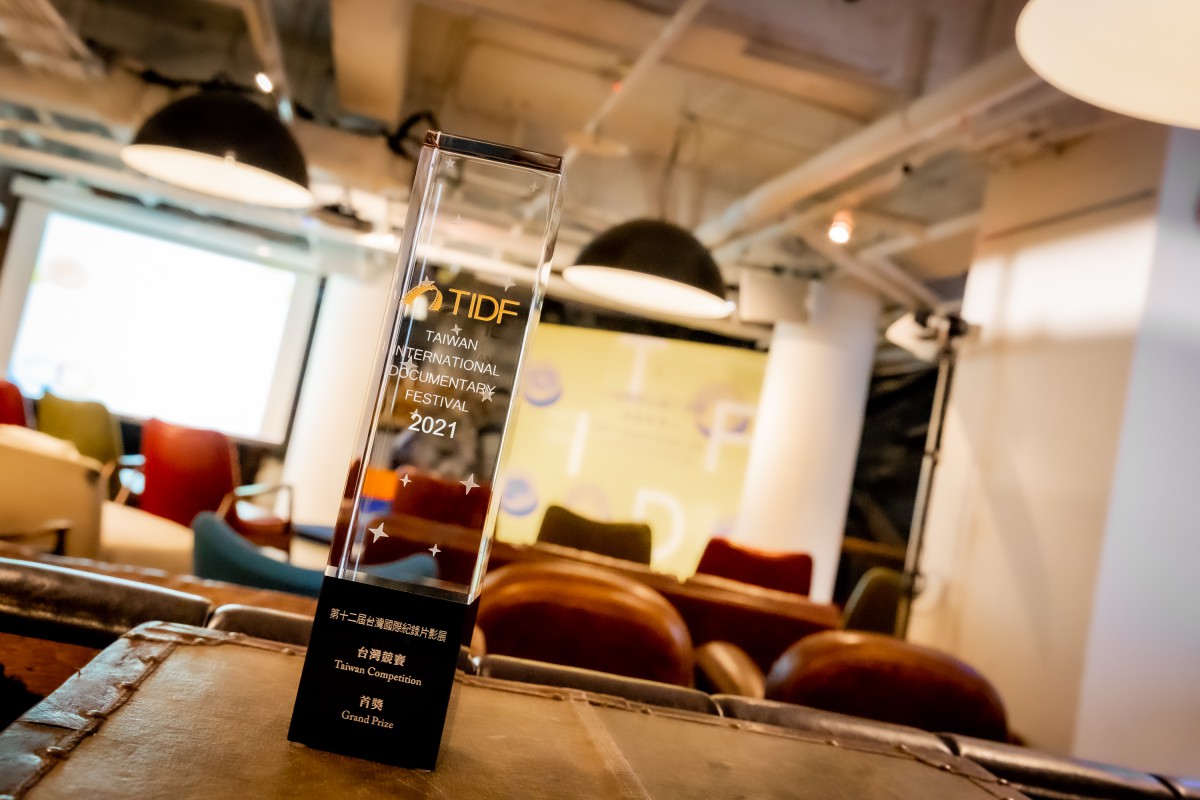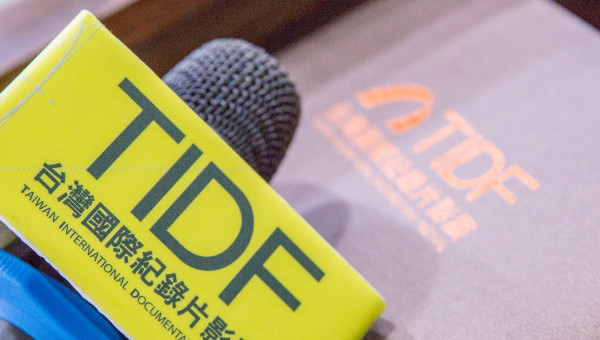2021 TIDF Award-Winning List
Asian Vision Competition
Grand Prize :Shadow Flowers by YI Seungjun
In Shadow Flowers, The director YI Seungjun details the long struggle of Kim, a North Korean national desperate to return to her hometown of Pyongyang. Repeatedly, we watch as Kim's reunion with her family is thwarted by the vagaries of politics. Each time, the camera witnesses her devastation as she finds she still can’t leave South Korea.
The jury applauds the director for staying with this multi-year project, bearing witness to Kim’s state of limbo, being neither here nor there. We see the health and emotional toll this state takes on Kim. We appreciate the precise camera work, the controlled tone of each scene which reveals Kim’s desperation and vain hopes.
This film is relevant because the scaring experiences that Kim goes through is suffered by millions of displaced persons the world over. The documentary goes beyond the usual North Korean defector story. and asks important universal questions: what is freedom, what is home, and what does it mean to settle or not.
Merit Prize:Lost Course by Jill LI
Produced over nearly a decade, this debut feature documentary is a testament to the value of tenacity and journalistic commitment. At moments in the film we see an influx of media attention on the small Chinese town of Wukan and the intergenerational struggle of its residents to reclaim local land that has been sold off by corrupt officials, yet we applaud what the filmmaker captures after most eyes turn away, as enthusiasm is dulled by bureaucratic morass and righteousness deteriorates into an infuriatingly familiar moral bankruptcy.
Among its merits, the jury wishes to celebrate the film’s finely-calibrated assemblage. Editing together years of material, over three hours the film balances a portrait of selected central individuals with a mosaic-like, even Boschian view of the village at large, while reflecting and refracting the influence of broader political forces.
Special Jury Prize :Soil without Land by Nontawat NUMBENCHAPOL
We have awarded the Special Jury Prize to an insightful documentary with compelling narratives crafted through the juxtaposed compositions of imagery, sounds, and interviews, the director crosses national and ethnic borders to depict points-of-views of “the other side,” giving voice to the marginalized and the stateless. While rigorous and artistic in construction, the film is generous and gives ample space to the voice and experiences of the central figure, as the portrayal of its Shan protagonist shapes a collective portrait of the repressed youth struggles under the flag of fighting for autonomy.
Jury Special Mention :For My Alien Friend by Jet LEYCO
The Jury is pleased to bestow a Special Mention on a film whose maximalist and kaleidoscopic approach feels less appropriate for an “Asian Vision” competition than one reflecting its multitudinous and delirious “Asian Visions”. A project that challenges traditional expectations and demands of “documentary film”, we recognize and appreciate an approach that weds non-fiction material–both original and sourced–with elements of narrative cinema, performance, video art, digital culture and more. Part broadcast, part time capsule, and equally admirable for its moments of grace as well as those of dissonance, the film is a raw and resonant portrait of the contemporary Philippines.
Jury Special Mention :The Strangers by MYOUNG Sohee
After a long absence, the director returns home from a big city to visit her mother, a hardworking shopkeeper in the small town where the director had grown up. Using a camera to connect with one’s parents is a sub-genre in the personal documentary genre, and in lesser hands it can become a one-sided interrogation of a reluctant interviewee.
With MYOUNG’s restrained and deceptive approach, the film transforms into an absorbing portrait of working class life where a family’s traumas, big and small, resolved or not, are interwoven with its births, deaths and weddings. The ebb and flow of time marks the people as much as the spaces they delved in as the dank alleys and rooms MYOUNG had escaped from and now revisits are set for demolition.
Through skillful editing that incorporates interviews, scenes of daily life, home movies, the director creates a compelling work that is neither manipulative nor nostalgic. The audience is left with the sense that come what may, the journey of life continues.
International Competition
Grand Prize:Erased, ___ Ascent of the Invisible by Ghassan HALWANI
In this multi-disciplinary performative documentary, the filmmaker found innovative visual forms to address the crimes and disappearances of the Lebanese civil war of 1975-1990 by making tangible and visible the ways in which they were and are still denied to even have happened. Indicating that Lebanon is far from doing the real truth-, justice and soul searching, the film raised important questions and suggested alternative ways relating to the collective memory and representation of individuals in society. Moving and provocative, personal and political, the film is not only relevant to the local context of Lebanon, but also extremely global as many countries around the world have also been suffering from the same problem of historical amnesia.
Merit Prize:No Data Plan by Miko REVEREZA
The train runs across the United States from the West coast to the East for days and nights. Passengers flick through the ever-changing scenes of continental landscapes and urban vibes through the window. Trapped in the carriage, their reality is just anything in front of their eyes. The protagonist’s fear of living as an illegal immigrant flows flurrying yet quietly along with the turning wheels. He sits and searches with restless sight with silent dialogue engraved in the noise on the train. The film is a hidden autobiography refracting a deeper reality from the surface.
Jury Special Mention :Scheme Birds by Ellen FISKE and Ellinor HALLIN
The Special Mention of the International Competition of TIDF goes to a bittersweet coming- of-age film with amazing access to some exceptional, mostly young working class people of which Gemma, a young girl is our impressive rounded central character. Although the surroundings are bleak and there is a constant loom of violence, there is also always love, hope and resilience shining through the cracks and ultimately we experience a strong sense of transformation. This transformation happens not only to the people but also to the former steeltown of Motherwell, Scotland that lost all of its glory in the 1980’s when the steel factories were closed down by the British. The smart use of voice-overs of the protagonists, the efficacious cinematography, the lively editing and the persuasive soundtrack all tie in wonderfully with the slowly but surely unfolding dramatic narrative.
Taiwan Competition
Grand Prize:Opening Closing Forgetting by James T. HONG
A powerful, courageous and well researched film which brings to light an unknown historical trauma that seventy years later hasn’t healed yet. A topic with universal resonance, a visual record of the horror of biological experimentation and warfare on humans, that comments, at the same time, on the disappearance of memory and the denial of assuming responsibility.
Merit Prize:Gubuk (Hut) by SO Yo-hen
A crowdsourced use of re-enactment as a way to layer over a tapestry of life stories in the form of a fictional movie that is structured to focus on A Break Into Act 2. The film leads us to a group of migrant workers who come together and speak of dramatic turns in their lives. And as they hide in this momentary anonymity together, pleading creative license in this narrative altogether, they speak freely to form a continuing community story. The filmmaker reveals himself in the process of staging, turning the work into a cacophony of sobering voices that immerses us into a reality that is felt and shared rather than read, ending in a crescendo that bursts with much uncertainty and compassion.
Jury Special Mention :Flow by SU Ming-yen
Without much narration, the images reveal a story of its own. The filmmaker regards the “flow” as a metaphor to address life and daily scenes, refracting the presence that wanders in the fringe of the city and the ruins in history. The black and white images consolidate the chaos and trivial things in the surroundings, conveying the themes of death, forgetting and time with lightness. Some of the unconventional approaches bestowed the ordinary with a poetic touch, allowing the viewer a more profound gaze and ponder on what one sees and feels. An exquisite piece of short film.
Chinese Documentary Award
Grand Prize:Taking Back the Legislature, Inside the Red Brick Wall by Hong Kong Documentary Filmmakers
For their powerful vérité immersion, their capture of the passion and contradictions of the insurgency of a people, for their precise framing and their sharp editing, for their fearless determination to document pivotal historical events at great risk of facing retribution from authorities, and for inspiring audiences to reject tyranny all over the world, the Jury is proud to award the Grand Prize to two films, that are linked serially by their authors, in reality and in their form,Taking Back the Legislature and Inside the Red Brick Wall directed by the Hong Kong Documentary Filmmakers. The Jury wishes to thank the collective communion of the group of filmmakers that have made these two films that contribute to our understanding of how cinema responds to political urgencies, feeds the conscience and collective memory of the world in our era of overwhelming control and surveillance.
Special Jury Prize:Lost Course by Jill LI
This is an observational documentary about a social movement. One sees uses of strategies under various circumstances, heated debates between groups and individuals, the tug-of-wars amongst various parties, confrontations of words and discourses, and the dilemma between unity and division. With the fervent anticipation of the international media and the accessibility of mobile networks, an intricate story thus unfolds.
Jury Special Mention :Happy Valley by Simon LIU
The film has succeeded in expressing the artist's feelings, love, and impatience with the looming threat directly and poetically. The tears and heat and heart of the filmmaker made the flood of our beloved Hong Kong's landscape and atmosphere in the cinema, and that's never stopped.Pure and powerful, and nostalgic film that is very fragile like a rope barely connecting between ships and ground. We praise his young, pure and straightforward perspective as a documentary film, and we offer Jury Special Mention.
Taiwan Film Critics Society Prize:Lost Course by Jill LI
「導演以超越一般製作的耐心蹲點,捕捉中國民主運動異於尋常所見的風景,亦穿透被攝者之表演欲,窺見其下真實。作品架構完整,不滿足於即時報導,更立基於抗爭結束之後,進一步深掘「民主」難以簡單概括的複雜性,尤為可貴。」
Next Generation Award
The Taste of Secrets constructed its timeline and space from photos taken by the photographer. Led to revealing the scars in their memories from the secret recipe of the director's mother, comparing how they face the way history hurts. In the documentary, for knowing more about the Khmer Rouge, in addition to using family photos, dialogues between the director’s mother and her friends, the director explored the painful memories of his mother from the side by profiling. It showed the contradictory relationship between ‘the director’s eager to restore’ and ‘the subject’s intention to pretend to forget’. In a contradiction like that, it also highlighted the delicate execution ability of the director. He has clean filming consciousness and concise and powerful performance technique. Thus, we frequently felt the inner waves and emotional flows of the subject in the scenes without dialogue. What was expressed in between a shot and another shot was not merely a story laid silently in the past, but was also the weight of the experiences the director and his mom had gone through in the torrent of history and the excavated memories. It’s a luminously, lucidly poetic letter from home made up of frame after frame of plain footages. If the seemingly distant history results from the overlapping collective memories, The Taste of Secrets is as if reminding us to sincerely look back. Every unique memory is factual, authentic and yet adjoins each other. The Taste of Secrets is a work possessing qualities of both storytelling and issue discussions; hence it’s worth recommending.



